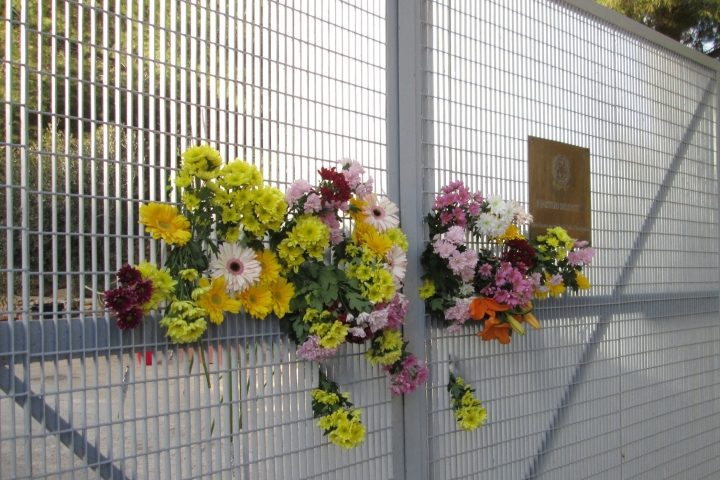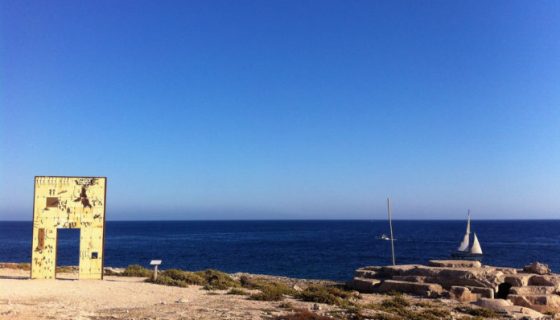- Mediterranean Hope - Federazione delle chiese evangeliche in Italia
- mh@fcei.it
It’s High Time We Listened to Lampedusa
by Marta Bernardini and Francesco Piobbichi. Lampedusa, February 16th 2015 – From the beginning of January it was already clear to us, who have been living in Lampedusa for month, that arrivals on the island were increasing, and that a real acceleration of landings has occurred last week. Last Monday, February 9th, the news of the death of 29 migrants and the disappearing of many others at sea became a new piece of the complex framework that characterizes our time. Many persons have been fleeing from war and persecution, and left Libya despite very dangerous sea conditions. We now realize that Mare Nostrum is over: the end of the program is clearly visible on the tired faces of migrants who arrive on our shores. They are exhausted from days at sea, rescued by the sole activities of Guardia Costiera (Italian Coast Guard) ships. The end of Mare Nostrum is written on the faces of all those who are part of the relief operations: the crews of the Capitaneria di Porto (Italian Port Autorithies), physicians and nurses. They have spent hours sailing a sea, which swallows lives. Italian boats are the only ones responding to help requests and facing waves of unprecedented strength. Lampedusa is forced by the absence of a clear political decision to deal on its own with the contradictions of entire continents, relieving the pain and the tragedy of many individual washed ashore lifeless. The entire island is mourning and paying its respect to the dead in a much stronger way that what the media are showing. A new tragedy struck this community and everyone feels the need to express empathy. On Thursday, February 12th, a demonstration was organised in order to offer “a flower to those who died and a hug to those who survived”. Residents marched to the Centro di Primo Soccorso e Accoglienza (First Aid And Reception Centre) to remember those who died and in particular to show solidarity for those who have arrived in Lampedusa safe and sound. The gate of the centre was closed and it was actually impossible to hug those inside: walls and boundaries are increasing in Europe. A new week begins with many arrivals and a new fear: the ISIS threat. A new alarm that here is perhaps more induced than really perceived. Something has been clearly changing. We wonder why so many people landed in just a few days despite the conditions of the sea. We wonder if these phenomena are the result of choices made by traffickers who have changed their strategy or if the arrivals are part of geopolitical dynamics that anticipate scenarios still out of our understanding. This problem can no longer be faced by Italy and Europe alone. It should be considered on a global perspective. The future of hundreds of thousands of people, refugees, political refugees and asylum seekers who now rely on the sea should be considered on a global level. If the emergency is global, the response must be global. The UN Security Council should be in charge of managing this issue and immediately work on possible solutions through a global plan of humanitarian protection in which each government should have a part. Our politicians should discuss the issue, which is much bigger and more complex than debating on Mare Nostrum or Triton, or worse, on the possibility of military intervention in Libya. A military operation would only add war to war, as we have already seen in the recent past. *operators of Mediterranean Hope - The Migration Observatory at Lampedusa a project of the Federation of Protestant Churches in Italy (FCEI)





